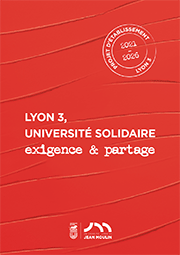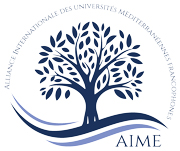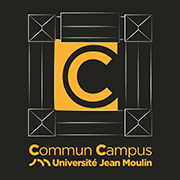AccueilRechercheProgrammes et productions scientifiquesThèsesThèses soutenuesThèses soutenues - 2006-2021Thèses soutenues - 2017
-
Partager cette page
- Recherche,
CORSO Cécile
Les conventions bilatérales franco-marocaines à l’épreuve de l’européanisation du droit. Etude de droit international privé de la famille.
Publié le 11 octobre 2017 – Mis à jour le 19 décembre 2017
Thèse en Droit mention Droit Privé, soutenue le 27 septembre 2017.
Les conventions franco-marocaines du 5 octobre 1957 et du 10 ao?t 1981 constituent le socle de la coopération bilatérale entre les ?tats fran?ais et marocain en matière familiale internationale. Négociées il y a plusieurs décennies, elles ont pour objectif de garantir aux ressortissants des deux ?tats l’application de leur statut personnel sur le territoire de l’autre ?tat et de mieux assurer la protection des enfants et des créanciers d’aliments. Ces conventions se sont toutefois heurtées à l’hétérogénéité des ordres juridiques fran?ais et marocains. L’européanisation croissante du droit international privé de la famille invite à s’interroger sur la place laissée par les droits européens aux conventions bilatérales franco-marocaines. L’applicabilité des conventions franco-marocaines est mise à l’épreuve par l’emprise croissante des règlements européens de droit international privé articulés aux conventions de La Haye. L’enchevêtrement des normes applicables conduit alors à examiner les solutions permettant d’articuler les sources entre elles. Dans les hypothèses où elles demeurent applicables, les conventions franco-marocaines sont là encore soumises aux droits européens. L’influence des droits européens peut alors servir les objectifs conventionnels et porter les conventions franco-marocaines vers plus d’efficacité, ou alors infléchir les obligations bilatérales lorsque les valeurs européennes se trouvent mise en cause.
The French-Moroccan agreements of October, 5th 1957 and August, 10th 1981 establish the base of the bilateral cooperation between French and Moroccan States in the field of private international family law. Negotiated several decades ago, they have for objective to guarantee to the nationals of both States the application of their personal status on the territory of the other State and to insure the protection of the children and the maintenance creditors. These conventions however came up against the differences existing between the French and Moroccan legal orders. The increasing Europeanisation of the private international family law invites to wonder about the place left by European laws for the application of the French-Moroccan bilateral agreements. The applicability of the French-Moroccan conventions is put to a test by the increasing influence of the European regulations articulated with the Hague Conference’s conventions. When they are applicable, the French-Moroccan agreements are submitted even there to European laws. Then, the influence of European law can serve the conventional objectives and carry the French-Moroccan agreements towards more efficiency, or bend the bilateral obligations when the European values are questioned.
Mots-clés : Statut personnel – conventions franco-marocaines de 1957 et de 1981 – conflits de conventions – européanisation du droit international privé – droits fondamentaux – exception d’ordre public.
Keywords : Personal status - French-Moroccan agreements of 1957 and 1981 - conflicts of conventions – Europeanisation of international private law - fundamental rights – public policy exception.
Directeur(s).trice(s) de thèse : M. Alain DEVERS
The French-Moroccan agreements of October, 5th 1957 and August, 10th 1981 establish the base of the bilateral cooperation between French and Moroccan States in the field of private international family law. Negotiated several decades ago, they have for objective to guarantee to the nationals of both States the application of their personal status on the territory of the other State and to insure the protection of the children and the maintenance creditors. These conventions however came up against the differences existing between the French and Moroccan legal orders. The increasing Europeanisation of the private international family law invites to wonder about the place left by European laws for the application of the French-Moroccan bilateral agreements. The applicability of the French-Moroccan conventions is put to a test by the increasing influence of the European regulations articulated with the Hague Conference’s conventions. When they are applicable, the French-Moroccan agreements are submitted even there to European laws. Then, the influence of European law can serve the conventional objectives and carry the French-Moroccan agreements towards more efficiency, or bend the bilateral obligations when the European values are questioned.
Mots-clés : Statut personnel – conventions franco-marocaines de 1957 et de 1981 – conflits de conventions – européanisation du droit international privé – droits fondamentaux – exception d’ordre public.
Keywords : Personal status - French-Moroccan agreements of 1957 and 1981 - conflicts of conventions – Europeanisation of international private law - fundamental rights – public policy exception.
Directeur(s).trice(s) de thèse : M. Alain DEVERS
Membres du jury :
- DEVERS Alain, Ma?tre de conférences HDR, Université Jean Moulin Lyon 3
- FARGE Michel, Professeur agrégé, Université de Grenoble Alpes
- FULCHIRON Hugues, Professeur des universités, Université Jean Moulin Lyon 3
- MOURISSAT Cyril, Professeur des universités, Université Jean Moulin Lyon 3
- OUNNIR Abdallah, Professeur, Université de Tanger, Maroc
- SANA-CHAIILL? DE NER? Sandrine, Professeure des universités, Université de Bordeaux
Président.e du jury : Abdallah OUNNIR
Equipe d'accueil : EDIEC
- FARGE Michel, Professeur agrégé, Université de Grenoble Alpes
- FULCHIRON Hugues, Professeur des universités, Université Jean Moulin Lyon 3
- MOURISSAT Cyril, Professeur des universités, Université Jean Moulin Lyon 3
- OUNNIR Abdallah, Professeur, Université de Tanger, Maroc
- SANA-CHAIILL? DE NER? Sandrine, Professeure des universités, Université de Bordeaux
Président.e du jury : Abdallah OUNNIR
Equipe d'accueil : EDIEC
Décision : Admis
Documentation
Mise à jour : 19 décembre 2017







